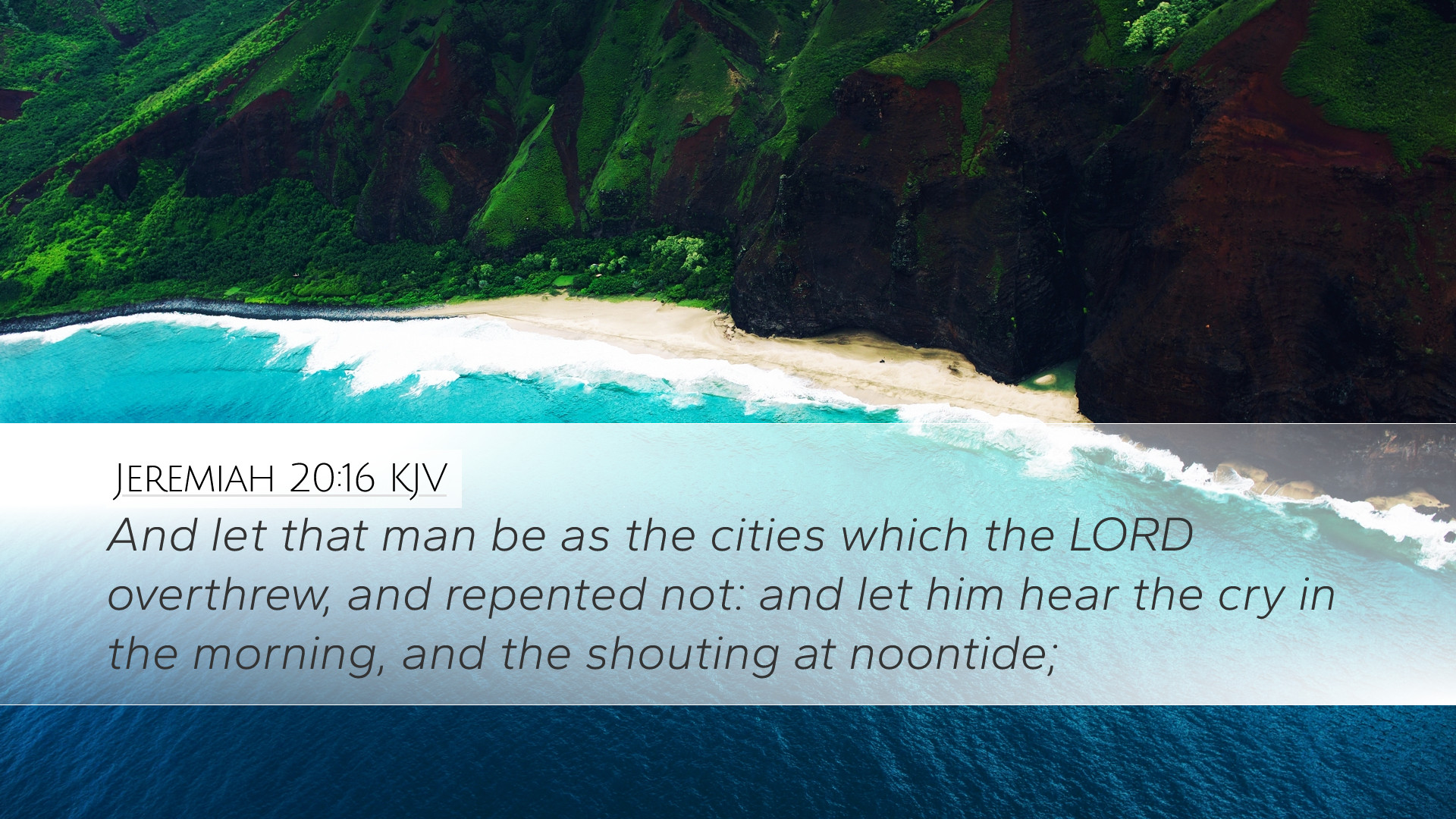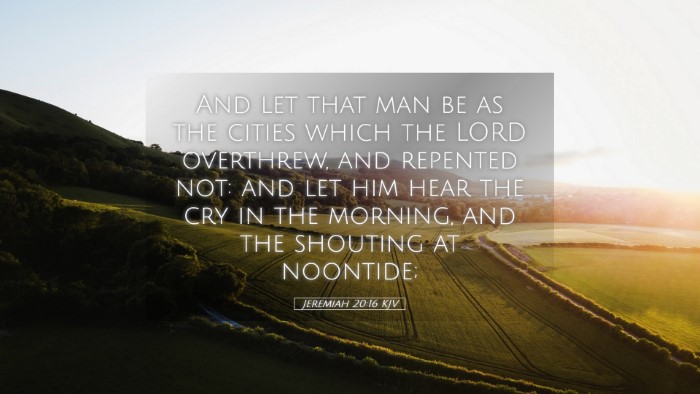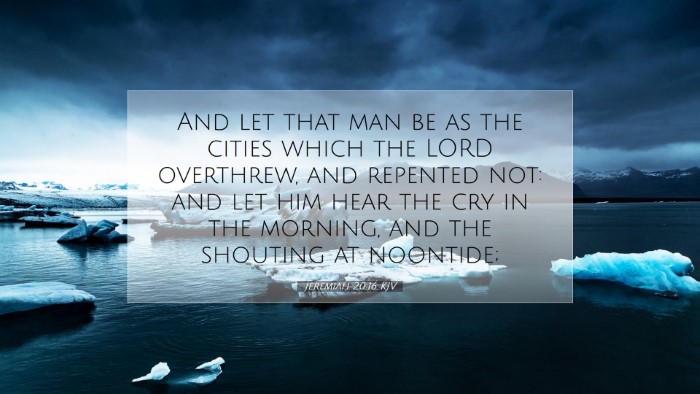Bible Commentary on Jeremiah 20:16
Verse: Jeremiah 20:16 - "Let that man be like the cities which the LORD overthrew, and repented not: and let him hear the cry of the morning, and the shouting at noontide;"
Introduction
This verse forms part of Jeremiah's lamentation that reflects his deep anguish and the weight of the prophetic burden he carries. In understanding this scripture, we will draw from multiple public domain commentaries to elucidate its meanings and implications.
The Context of Jeremiah 20
Jeremiah, known as the weeping prophet, faced relentless persecution for his prophetic messages, which often condemned the nation of Judah for its disobedience. This chapter captures a significant moment where Jeremiah expresses his deep sorrow over the fate of those who oppose God and his message. His call for destruction upon his enemies showcases the profound struggle between justice and mercy, a common theme in the prophetic literature.
Commentary Insights
Matthew Henry’s Insights
Henry highlights that the call for judgment upon the man referenced in this verse indicates intense emotion within Jeremiah. He draws parallels with the cities of Sodom and Gomorrah, which God destroyed for their wickedness without remorse. Jeremiah wishes for a similar fate for the man who delayed his prophetic word and persecuted him.
Henry explains that calling down such curses is not merely a desire for retribution; it reflects Jeremiah’s understanding of divine justice. The emotional weight behind his lament speaks to the depth of his commitment to God’s righteousness.
Albert Barnes’ Perspective
Barnes emphasizes the poetic and rhetorical nature of Jeremiah's lament. He interprets the phrase “like the cities which the LORD overthrew” as an invocation of divine judgment upon unrepentant individuals. Barnes asserts that Jeremiah’s desire for this man to suffer is rooted in the prophetic tradition where the messenger often embodies the tension between divine anger and mercy.
Furthermore, Barnes elucidates that the mention of “the cry of the morning” suggests an uninterrupted lamentation, representing ongoing sorrow in the absence of God’s favor. He elaborates that Jeremiah, in this instance, is keenly aware of the spiritual consequences of defying God’s word, illustrating the often-painful journey of a prophet amid unyielding opposition.
Adam Clarke’s Analysis
Clarke offers a more historical interpretation, associating the “man” with specific adversaries of Jeremiah. He notes that this verse serves as a dire warning regarding the inevitable consequences of opposing God’s will. Clarke stresses the principle that divine justice requires consequences for actions contrary to God’s order.
He also notes the emotional tones surrounding the prophecy, emphasizing that the prophet’s wish for destruction reflects deep psychological and spiritual turmoil. Clarke illustrates how Jeremiah's outcry may come as a natural response to the agony he experiences while fulfilling his prophetic role.
Theological Themes
This verse and its surrounding context touch upon several theological themes relevant to pastors, students, theologians, and Bible scholars:
- Divine Justice: The invocation of destruction speaks to God’s unwavering justice against sin.
- The Nature of Prophecy: Jeremiah’s struggle highlights the challenging role of the prophet, who must confront both the rebelliousness of people and the burdens of divine messages.
- Human Emotions and Divinity: The intensity of Jeremiah’s feelings offers insight into how human emotions interact with divine will, revealing the authenticity of the prophetic experience.
- Repentance and Restoration: Although the concept of judgment is pronounced, there remains an implicit call for repentance, emphasizing that restoration is always available to those who turn back to God.
Application for Today
The verse invites reflection on the nature of our responses to injustice and opposition to God's will in contemporary settings.
Pastors and leaders within the church can use this text to encourage congregations to acknowledge their emotional responses, yet to channel them into prayer and intercession rather than malediction.
Scholars can delve into the text’s rich historical context, examining how Jeremiah's lament is relevant to conversations around prophetic ministry and societal challenges today.
Conclusion
Jeremiah 20:16 serves as a poignant reminder of the complexities of prophetic ministry in the face of adversity and the continual call for justice and righteousness. By examining varied commentaries, we gain a fuller understanding of the verse's significance and its implications for faith and practice in our lives today.


